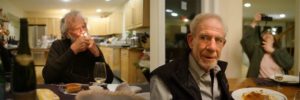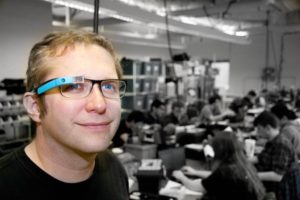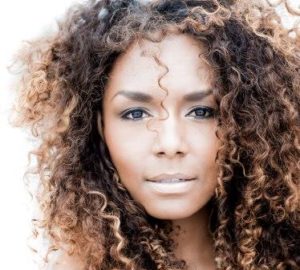This fall, the Higgins School of Humanities’ Dialogue Symposium will focus on the question, “What does it mean to be human?”
“I’m only human. I say that a lot: when I can’t get through my to-do list, when I make a mistake, when I am overwhelmed by circumstance or emotion,” wrote Amy Richter, director of the Higgins School of Humanities, in her letter introducing the themed events to the campus. “It takes the pressure off, lowers expectations, creates room for forgiveness. It’s a funny expression. Only human, it suggests something small, fallible, powerless — implying that we know fully what being human entails.”

Programs will examine the shifting understandings of race and sex; trace changing attitudes toward faith, science, and mortality; and question evolving meanings of intelligence and emotion.

On Thursday, September 24, religious and environmental scholar Mary Evelyn Tucker, will present “Becoming Human: Our Evolutionary Story,” at 7 pm in the Higgins Lounge, Dana Commons. Tucker will illustrate will illustrate how Journey of the Universe, a film, book, and interview series, responds to these questions and asks anew, “How do we, as humans, belong?”

Future events include a talk by research scientist Emile Bruneau on the brain’s role in empathy, and wearable computing pioneer and human cyborg Thad Starner on how computers make us more human. Writer and transgender rights activist Janet Mock will discuss her new book, “Redefining Realness: My Path to Womanhood, Identity, Love & So Much More” (Atria Books, 2014), and describe what it was like growing up multiracial, poor, and transgender in America.
Mark your calendars for an exciting exhibit of digital photos by Stephen DiRado, senior lecturer in the Department of Visual and Performing Arts. DiRado, an acclaimed Worcester photographer and filmmaker, will share images from his “Dinner Series” photo sessions, reminding us of the intimacy and beauty of everyday human interaction.
Also, this fall, the Higgins School of Humanities celebrates ten years of Difficult Dialogues at Clark. Learn about the initiative that started it all (with support from the Ford Foundation) and how we created more conscious spaces on campus for speaking, listening, and creative insight. Join us on Thursday, November 5, as we celebrate 10 years of encouraging community reflection on and engagement with major issues, including race, religion, gender, and climate change.
All events in this symposium are being held on campus. They are free and open to the public, and are sponsored by the Higgins School of Humanities with funding from the Andrew W. Mellon Foundation.
For a full list of events, visit: https://www.clarku.edu/higgins-school-of-humanities/Calendar/index.cfm.
For more information, call 508-793-7479 or email HigginsSchool@clarku.edu.
Founded in 1887 in Worcester, Massachusetts, Clark University is a liberal arts-based research university addressing social and human imperatives on a global scale. Nationally renowned as a college that changes lives, Clark is emerging as a transformative force in higher education today. LEEP (Liberal Education and Effective Practice) is Clark’s pioneering model of education that combines a robust liberal arts curriculum with life-changing world and workplace experiences. Clark’s faculty and students work across boundaries to develop solutions to complex challenges in the natural sciences, psychology, geography, management, urban education, Holocaust and genocide studies, environmental studies, and international development and social change. The Clark educational experience embodies the University’s motto: Challenge convention. Change our world.
